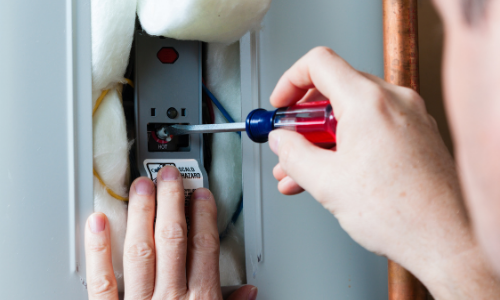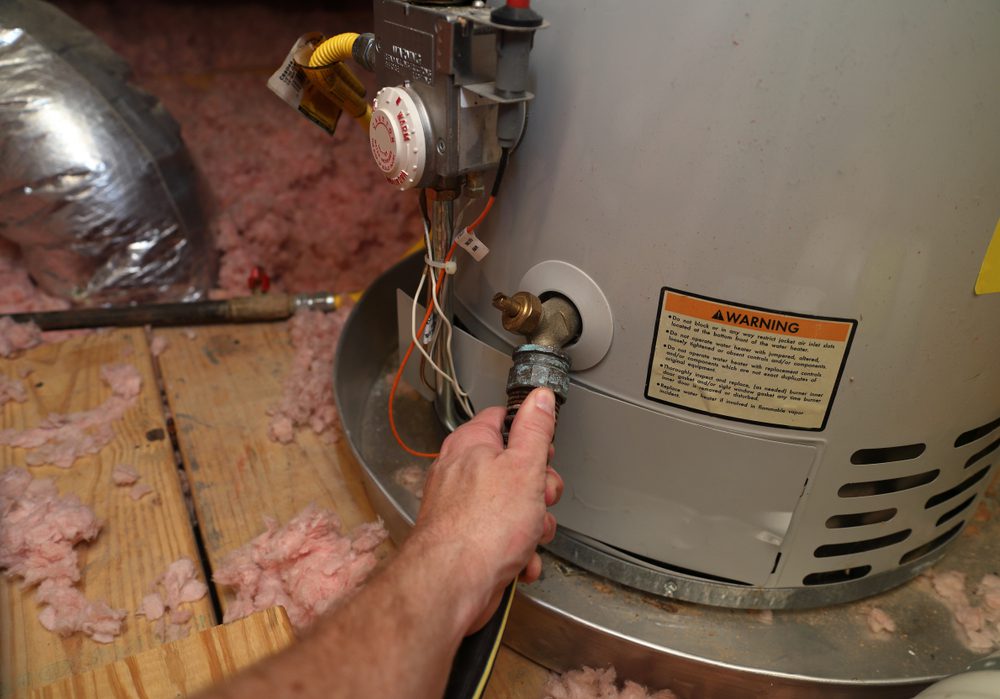Do you find yourself searching for related information about Is Your Water Heater Leaking??

A hot water heater is one of one of the most crucial standard appliances that can be found in a house. With water heaters, you don't require to experience the stress of heating water by hand every single time there is a demand to wash, wash, or the recipes. However, there is constantly an opportunity that your water heater would break down similar to the majority of mechanical devices.
It is very important to note any type of little malfunction as well as tackle it promptly before things get out of hand. A lot of times, your hot water heater begins to malfunction when there is an accumulation of debris as a result of continuous use. As a safety measure, regular flushing of your hot water heater is suggested to avoid sediment accumulation and avoid practical failure.
Common hot water heater emergency situations as well as just how to take care of them
Leaky water heater storage tank.
A leaking storage tank could be an indication of corrosion. It can trigger damages to the floor, wall surface and also electrical devices around it. You can even be at risk of having your apartment or condo flooded. In this situation, you ought to switch off your water heater, permit it to cool down, and very carefully try to find the resource of the issue. At times, all you need to do is to tighten a few screws or pipe links in cases of small leakages. If this doesn't work and also the leakage persists, you could need to employ the services of a technician for an appropriate replacement.
Varying water temperature.
Your water heater can start producing water of various temperatures usually ice cool or hot hot. In this circumstance, the first thing you do is to make sure that the temperature is readied to the desired degree. If after doing this, the water temperature level keeps transforming throughout showers or other activities, you could have a faulty thermostat. There might be a requirement to replace either the heating or the thermostat system of your hot water heater.
Too little hot water
It might be that the water heater can not support the hot water demand for your apartment. You might update your water heater to one with a bigger ability.
Blemished or odiferous water
When this takes place, you require to understand if the issue is from the tank or the water resource. If there is no funny scent when you run cool water, then you are specific that it is your water heater that is malfunctioning. The stinky water can be triggered by corrosion or the accumulation of germs or debris in the water heater storage tank.
Conclusion
Some property owners overlook little caution and also minor faults in their hot water heater system. This only results in further damages as well as a possible complete failure of your home appliance. You ought to take care of your water heater mistakes as soon as they come near prevent more expenses as well as unneeded emergency troubles.
With water heaters, you do not require to go via the anxiety of home heating water manually every time there is a requirement to take a bath, do the washing, or the dishes. Your water heating system can begin producing water of various temperature levels generally ice scalding or chilly warm. It might be that the water heater can't support the warm water demand for your apartment or condo. If there is no funny smell when you run chilly water, after that you are certain that it is your water heater that is defective. The smelly water can be triggered by corrosion or the build-up of germs or sediments in the water heater tank.
Water Heater Burst: Why This Happens And What To Do Next
Water Heater Explosion Warning Signs
Since storage water heaters are made of metal and store large volumes of heated water, they carry an increased risk of leaking or even exploding as they begin to rust at the fittings and seams over time. If the thermostat controlling the water temperature within the tank is faulty, or if mineral buildup inside the water heater prevents the thermostat from sensing the water’s temperature correctly, the water could become overheated. This will expand its volume within the tank, causing it to press at the tank’s fittings and seams. If these fittings and seams are rusted or corroded, the pressure could result in a leak or even an explosion.
Here are some risk factors and warning signs of an increased risk of water heater leak or explosion:
Your water heater is more than 10 years old. Your water heater makes clanking, banging or rumbling noises as it heats up, indicating that sediment has built up and hardened inside the tank. There is visible rust on the outside of the water heater, especially located at the pipe fittings or the seams that run down the tank. There is rusty water coming from your water heater, indicating that there may be rust building up inside. Your water heater is leaking, which could indicate either a crack somewhere in the tank or a malfunctioning temperature-and-pressure (T&P) relief valve. What To Do When Water Heater Leaks
If you find water dripping or seeping out of your water heater, or pooling around it, it means your water heater is leaking. If you find a leak, it may be best to call a plumbing professional to diagnose the problem and determine how best to handle it. If you choose to tackle it on your own, there are a few things you can do.
TURN OFF THE POWER
Next, shut off the power to the hot water tank at your home’s electrical breaker box. If you don’t shut off the power, the heating elements within the tank could continue to stay hot, which could pose a fire risk.
If you have a gas-powered water heater, you’ll also need to shut off the gas line leading into the tank.
FIND THE LEAK
Now it’s time to determine where the leak is coming from. Likely locations are the T&P valve, the drain valve or one of the pipes or fittings that feed into the top of the tank. If you see any rust or corrosion on the outside of your water heater’s tank, pipes or fittings, these could also be the source of the leak.
REPAIR THE LEAK
Once you determine the source of your water heater leak, you’ll have a better idea of what steps you need to take to fix the problem. It may be a simple fix—such as using a wrench to tighten fittings or replacing the T&P valve—but it may be something more complicated. You may even need to drain the tank, remove the water heater and install a new one.
https://www.abchomeandcommercial.com/blog/water-heater-burst/

Do you enjoy reading up on Is Your Water Heater Leaking?? Try leaving a short review down below. We will be pleased to see your views about this blog entry. We are looking forward to see you back again in the future. Sharing is nice. You never know, you may very well be helping someone out. Thanks a lot for taking the time to read it.
Trust our expertise.